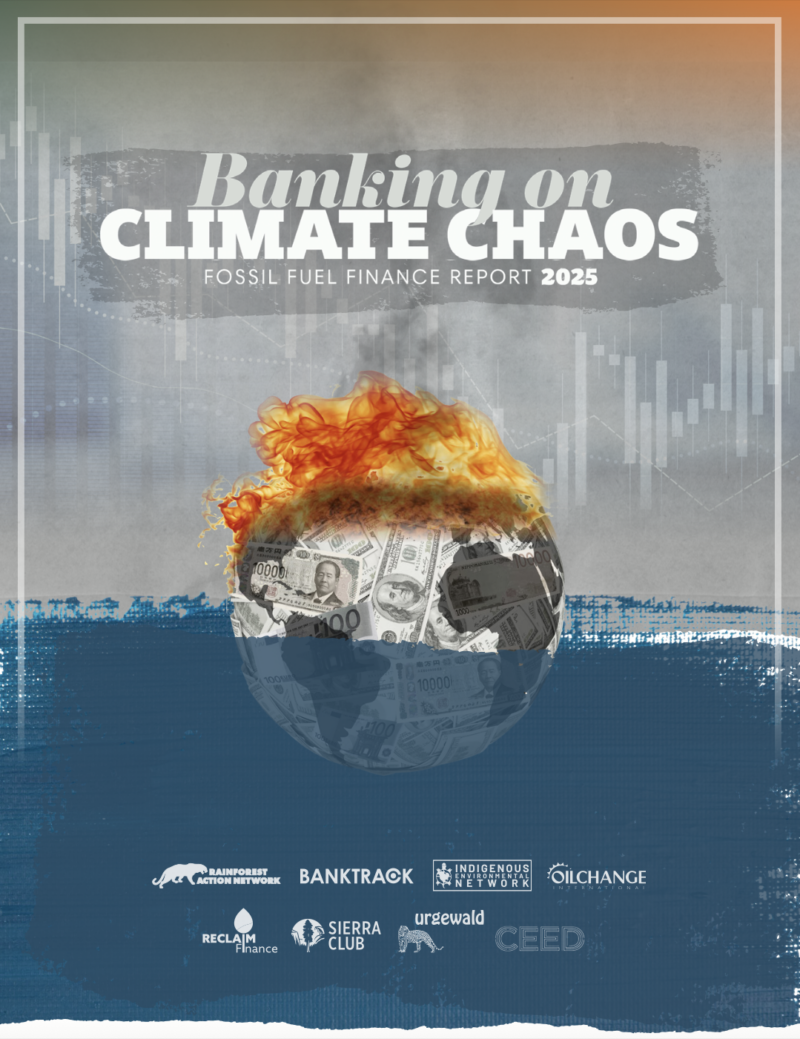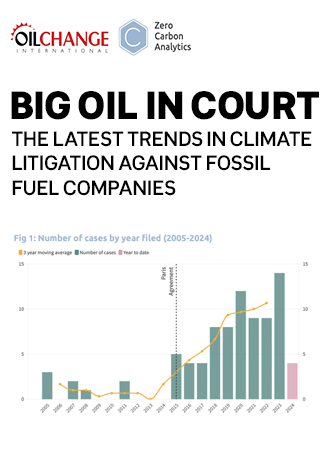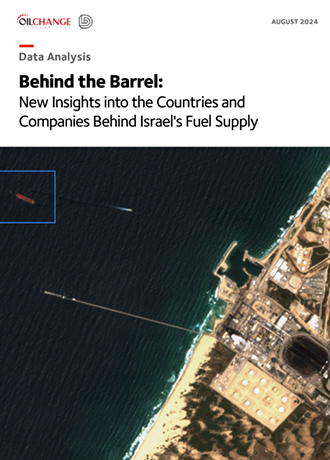
Banking on Climate Chaos 2025: Fossil Fuel Finance Report
The 16th annual Banking on Climate Chaos (BOCC) report covers the world’s top 65 banks’ lending and underwriting to over 2,700 fossil fuel companies. While the world’s top scientists from the International Energy Agency (IEA) repeatedly state that there is no need for a single new oil field, tanker, pipeline, or any fossil fuel expansion whatsoever, banks ignore climate risk and increase finance for dirty energy companies expanding their sector. This is amidst a rapid retreat from climate commitments many of these banks made at COP26 in Glasgow in 2021.








